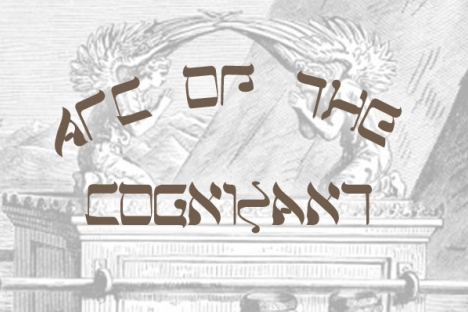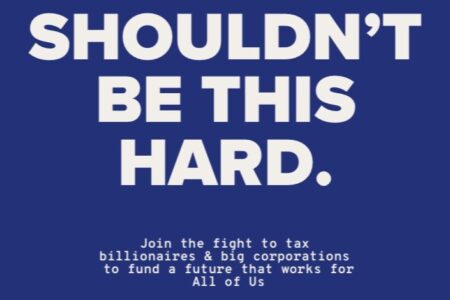Column: Intervention and Immigration -- Geopolitics in Transition
“The last shall be first, and the first, last.” — Gospel of John
Part one of this column is historical, part two is addressed to theory, and part three is focused on our present world order.
Part One
Afghanistan has fallen: geopolitics moves to the front burner, briefly
As Canadians, Americans, and other NATO nations assess their dismal failure in Afghanistan, other actors in the world power game – foremost China, Russia, India, Iran, and Pakistan, will have their focus on this region of high central Asia also.
Geopolitics has caught our eye for a few news cycles; what will change in the longer term, now that the West has another geopolitical failure in its record?
Power, Time, and Space
The power of a state has several ingredients, but the one that used to matter so much – size of territory and of population – is less than it was in pre-capitalist times. Now the strength of an economy, political stability and unity, and the sophistication of its military technologies, are more significant than size; witness Israel. But economic strength matters most.
No economically feeble nation can be a global power. And so empires, which were for a long time the greatest powers on the global stage, are not the major actors in geopolitics that they once were.
Still, the USA, China, and the European Union [EU] have a power akin to imperial realms of older times, stretching around the globe. Their instruments of domination are more subtle.
[see notes 7, 8, 9 and 10 in the appended section]
Geopolitical facts deciding the global distribution of power and politico-military alliance patterns have evolved, transformed. Change in relative power happens at acceleration rates that keep pace with change in the human order. Power is constructed upon changing economies and populations.
Some powers rise, others decline. A “middle power” in 1960 — this was Canada’s status then – cannot maintain that role without effort. Canada did not make the necessary effort, and today we are no longer of the middling rank, but rather less.
National population and economy: Growth, the capitalist ideal
Capitalism without growth is an impossibility, a fact known to the earliest writers on the market economy such as Adam Smith, Bentham, and the Philosophic Radicals.
A darker side of the modern economic system and growth in population was extrapolated by the Rev. Thomas Malthus, who argued that food supply could not keep pace with population growth, and famines would result. The Irish Famine of 1845-48 seemed to be proof of Malthusian predictions, but in fact was not caused by the factors Malthus hypothesized. The famine pushed a million Irish overseas in a very short time, and many more Irish followed the emigrant tide overseas later.
Europe in fact boomed in population from about 1750 onward, just as England introduced modern industrial capitalism to the globe, and the new-model economics made it possible to support more urban proletarian humans by growing the wage productivity of workers in industry. Rural peasantry became urban proletariat. The dream of liberty and a much better life among long-suppressed workers on land in feudal or aristocratic social orders led to Europe sending its “poor, starving masses” to America. This dream of freedom for Europeans led to natives losing their freedom to live as they had, and even to near-extinction of indigenous populations.
But what really made a European population explosion in the nineteenth century sustainable was less the effect of capitalist growth than the opportunity for the new masses to leave Europe and emigrate to the New World, to Australasia and South Africa, where imperial power created open arable land for colonists to occupy overseas. Indigenous peoples there were treated as inferiors, and dispossessed.
“British and Irish settlers played a major part in this catastrophe [referring to swift and enormous loss of population among natives in European colonial territory] totalling more than a third of some 50 million emigrants from Europe between 1815 and 1930. The disproportionate number of British subjects — 11.4 million from Great Britain and 7 million from Ireland – compared for example with 4.8 million from Germany – was partly because the way was opened by British world power and global commerce. Mass emigration provided new opportunity for millions and relieved social problems. Enthusiastic colonialists welcomed this global propagation of “the race” (i.e. British Race). Later perspectives damn the enterprise as “genocide.”
— R. Tombs, The English and their History, p. 555
Empire, commerce, colonies, and capitalism were good for European powers, states and nations who could keep up with the cutting edge of Progress as white Europeans defined progress. Other people elsewhere on the receiving end of the project weren’t so fortunate; Canadian aboriginal people are a salient case in point,
and so today Canada must deal with questions of justice for historical “crimes.” But that is not my topic, fascinating as it may be.
The concluding point from this historical sketch is this: recent history has made the notion of colonial projects as a solution to problems in the old crisis-ridden lands seem plausible, and colonies in the solar systems other bodies are hypothesized as a solution to the myriad problems of Old Earth. “Humanity can replicate the success of Europe’s imperial and colonial centuries, and salvation from catastrophe on our home planet will be possible off planet” — say the adherents of space colonization.
I will develop this point later.
From three billion to eight, in one partial lifetime
My life began in 1951. With others born in my cohort, I have the distinction of having lived through a tripling of human population, making us unique from all previous humans in our history. Exponential growth is like this: accelerating quantity; less time passed.
My memory of school-classroom lessons teaching world population is clear for the year 1965. In that year there were three billion humans on our earth. I was in my first year of high school when I registered this fact. World population at my birth was 2.5 billion, lower than it might have been due to large losses in the recent world war, where China plus Russia lost nearly 100 million.
There will be eight billion in 2024; the pandemic has slowed birth rates in the developed world, including China (a major surprise), and the higher death rate has slightly slowed population growth in undeveloped poor nations. But not for long.
Long before the pandemic, since the 1980s, the rich world was already a region where population over-growth was not an issue, for here we already had fallen to below replacement rate in births. It will be the poor nations of the world who will pick up the birthrate again post-pandemic. Some of the population increase there will find its way to rich developed nations, as legal immigrants, illegals, or refugees.
What to do about population change and refugees is a focus of Yuval Harari in his book 21 Lessons for the 21st Century. As one expects from this author, the book is replete with lucid analysis of global geopolitical challenges we cannot evade.
Canadian population and economics
“To those who say Canada must curb its obsession with growth, become less consumer-obsessed, learn to manage with a smaller population, we say this: Who is going to pay for your health care and pension when you get old?”
“… population decline not population growth will mark the last half of this century; the impact on the fight to reduce global warming and protect species at risk can only be positive.” — JohnIbbitson, Darrell Bricker, Globe & Mail, May 30
Canada expects to keep growing its population by immigration. Doug Saunders, a Toronto journalist of international reputation and winner of awards in Europe for his writing, has recently produced a book titled, Maximum Canada. It is his sure conviction, apparently shared by many in governance and the corporate circles, that Canada must accelerate our population growth through immigration. He believes our global power and economic affluence depend on reaching a population of 50 million in the next two decades, and 100 million by the century’s end.
By the end of my life it is very likely there will be nine billion people on the planet, which means a threefold increase of humans, even more, over the period of my lifetime. Who wants to argue the case that this has been good for earth?
Nevertheless, Canadian thinkers like Charles Foran and Michael Enright endorse the view espoused by Saunders: Canada must keep bringing people in as a matter of good economic policy. I question their idea that it is the correct course, and I cite no less a historian and public thinker than Yuval Harari in support of my stance. He does not support growth economics as the capitalist norm does, and makes cogent arguments against that model in 21 Lessons for the 21st Century.
Canada of course is a member of the rich nations’ club called the G7. Our economy justifies our membership in this circle. But what is our power? When Barack Obama and Bono agree that the world “needs more Canada” we feel complimented, but how do we contribute to geopolitical order?
Our true capacity to employ force is tiny, so very far below our capacity when I was a boy and Canada was a Middle Power. Our diplomacy has accordingly declined in impact. I believe we ought to return to the role we held in the sixties.
Geopolitics: a historical primer
Power is only perceived when someone exercises it. Geopolitical power, by which I mean material effect created by politics reaching round the world, has only been possible since global connections were created. The first world empire, global in extent, was Spain’s. Portugal, France, the Dutch, England, Denmark, and Scotland entered the contest; late to the table were Germans and Italians, who created no empires before 1870. Americans were later still, but once on scene, formidable.
Beyond the edges of medieval Europe there had always lain African lands, where the Arabs were dominant in the north; but black Africans were out of the sphere where Europeans had power. India, Persia, China, Mongolia, were powers in their own right, barely known to Europe and quite free to pursue cultural and economic evolution untouched by the West. Geopolitics had not acquired a global arena yet.
At the end of the fifteenth century, Spain and Portugal via their kings were granted a division of the global spoils along a line through the Atlantic by the pope, all territory west to be Spanish, and east to be Portuguese. American gold and silver made the Spanish king the unrivaled hegemonic power in Europe, only balanced by the equally-potent military empire of the Ottoman Sultan and the Turkish state.
War in Europe was ceaseless. European kings and princes resorted to force with very little motivation, since their medieval antecedents had normalized war as the sport of kings and the natural method of testing rival ambitions. There was a consensual culture that saw war and battle as falling within Providential jurisdiction, and that God was judging the merits of each side. Victors were chosen by God, and losers felt their next war would be successful once they had properly shown penitence to God for some sins in their nation. Philip II of Spain lost a vast Armada in his attack on England and yet soon began to plan a second one, when God would favour him. He tested his divine right to the Netherlands by war, and ultimately God seemed to choose the Dutch, who became freed of Spanish rule.
This was the “Columbian era” when Europeans sailed out on the Atlantic Ocean — then kept on, west or south. Arabs and Chinese had already linked east Africa by sea to east Asia before then — so maritime globalism along seacoasts could be said to date from a century before, but it was European kings who began to rule annexed lands. The dominance of their states, ruling alien peoples, commanded a new type of political order across the seas from their national home bases at the centre of empires. This pan-global trading venture was the necessary basis for geopolitics.
Wars among states in Christendom meant war on the seas and in lands where the Europeans had colonial or imperial territory. China, India, Persia, the Ottoman Turkish empire, and the Arab seaborne empires stretching from Egypt to Indonesia, witnessed their navies driven from the world’s oceans by European naval force.
The old order, when things were simple
When only Europeans had overseas empires, geopolitics were simple. Europe’s opportunity for primacy was a mere historical moment, not one that could be sustained indefinitely, any more than the ascendancy of any empire that had ever existed. It rested entirely on a temporary monopoly on high technology in weapons and factory production by industrial methods. These were for a brief while only found in Europe and to a small degree in northeastern USA.
In the seventeenth century, Tsarist Russia annexed Siberia; Britain acquired 13 American colonies, Jamaica, a bit of South America in Guyana; France ruled Canada, Louisiana, and choice islands in the Caribbean. The Dutch took over Ceylon, the southern shores of Africa, and Indonesian isles.
From about 1800, the British rose to hegemony and then empire in India, Pakistan, Burma, Malaya, Singapore. Australia and New Zealand were taken, and Hawaii nearly so. It was the time Britannia ruled the waves, the Royal Navy interdicted the slave trade, and an early form of globalism – commercial, capitalist, European-made — came into force.
Coming later to the contest, Americans’ empire was their own backyard, a vast contiguous continent, to which they added Alaska and Hawaii after the civil war. Its foes in North America were the British and Spanish in early days of American independence, and then natives in the West. Canada was in the sights of American “manifest destiny” yet managed to remain outside, as did Mexico. In 1899, the US smashed the Spanish Empire in a short war and acquired the Philippines, Puerto Rico, and nearly annexed Cuba. No one doubted the imperial stature of the US.
Now one can speak realistically of “Geopolitics” — they were the politics of Europe’s rival powers projected across the globe. The substance of power was size of territory and armed forces, but ultimately the modernity and productivity of the economy would determine who was a Power. England was not large, but oh so powerful.
From the Columbian era to 1918, European imperial order created, then dominated, geopolitics, with American imperialism a late entry after 1895. The only geopolitics was the politics of European white-man’s power on the global stage; no others’ mattered because no others had force or economics to challenge the white man. To taste the flavour of white man’s imperial ideology of this era, read Kipling’s succinct poem of imperialist arrogance, The White Man’s Burden, written for Americans in 1901. Profit drove capitalists, evangelism drove Christians, social Darwinism drove the ideology of racial supremacy. Geopolitics was another European innovation.
America joined these Powers after 1800, not an equal but an outsider with obvious naval potency. The western hemisphere came to be recognized as a preserve or sphere of the USA by 1900, where its politics were supreme and hegemonic.
Steam technology gave Europeans mastery of the seas with their ships and guns, and by 1870 only the British Royal Navy really ruled the seas, though the Americans and French, and eventually Germans, also had very powerful fleets. This was the time of maximum population growth rates in the prospering white-man’s lands, when emigration to newly-opened arable lands enabled 50 million to leave Europe between 1815 and 1930.
Being first to modernity, industrialization, and new military technologies, “white” Europeans and Americans had an unbeatable edge over others. They exploited their edge. The effect of being first to the table with these assets has meant white men’s territory is still quite rich by comparison to many other lands and peoples. Being first conferred huge privilege.
What is a Cold War?
Everyone knows the phrase, “cold war”. True Cold War has an element of constant competition in many spheres besides violent war and commercial rivalry, and always involves a contest of ideology and/or culture. Modern mass media and other global technology make this cultural contest possible.
To give cold war specific meaning, start by acknowledging the existence of two blocs of geopolitical power. The power must be functionally in approximate equilibrium, with neither side exercising dominance in politics, economics, technology, culture, military and naval capability, or resources. But is there ideological conflict also?
There have been times when it seemed there were cold wars, as between Islam and the Christian West in medieval times, or ancient Romans and Persians, Catholics and Protestants in Europe, or Chinese regimes and the nomadic powers to north and west, all roughly balanced in potential. But the land surface involved was not across the globe, and our thesis of geopolitical cold war imagines a global stage.
Wars, interventions, and early geopolitics
Hot war erupted very often in those earlier periods, and rivalries were tested along a common border with frequent invasions. Small states on the borders were often used as proxy armies for the great empires who sponsored them as clients. These were not cold wars as we have come to know them in modern times, since about 1700. Those early contests pitted autocratic rulers with personal ego drive against one another, and the motives for war were often rather personal than systemic.
The Protestant vs. Roman Catholic quasi-cold-war in the 1500s and 1600s seemed to have two clear rivals: an Anglo-Dutch-north German-Scandinavian side and a Franco-Spanish-Austrian side, appearing in several wars, yet in fact France often backed the Protestant side against the Habsburg-family axis of Madrid-Vienna.
By 1711, the United Kingdom and France had emerged as the clear rival poles of a cold war with religion and commercial empire as the constant cause, yet again, religion was not predictive of which sides were at war in the many conflicts before the French Revolution. The Muslim-Turkish empire and Orthodox Tsarist-Russian empire were part of the system yet not aligned by religious allegiance to one side.
The British often had Catholic allies like Austria, though Protestant Prussia was its great helper in the war of 1756 to 1763 when the UK won smashing victories and annexed Canada, Louisiana, Florida, and took formerly French territories in India. The military victories and property expansion of a British corporation, the East India Company, foreshadowed how Britain would soon ascend to south-Asian hegemony.
In 1763, Britain humiliated France, and the American colonists were well contented.
Britain’s Empire in 1770 seemed peerless: the richest, global, naval, commercial empire, surpassing the French, Dutch, Spanish and Portuguese in power and wealth, and its imposing seapower was only insufficient against mass armies of great land powers in Asia such as the Tsarist-Russian, Mughal-Indian, and Qing-Chinese empires. Those military empires were fairly impervious to any naval coercion Britain could attempt. Yet India was poised to become British territory, made possible by the British enrolling and arming a million-man army of Indian native soldiers.
The UK’s eighteenth-century primacy among European Powers soon passed; Britain lost America in 1783 when the colonies became an independent republic, assisted in their war by France. The American Revolutionary War was the downfall of the first British Empire. But soon Britain had a new theatre of imperial success, in Asia. The Army Britain created in India to serve the empire, allowed military expansion.
Be it noted, Canada did not assist Britain in wars that were clearly imperialist wars against small nations; we refused to help Britain in the Middle East against the insurgent Turks in 1922, nor would we ever help them fight Irish rebels. We did not use our own army to fight for Britain against the Boers in South Africa, and we carefully kept out of America’s war in Viet Nam (unlike Australia and New Zealand, who sent troops there on the US side.)
Our military contribution to the Korean War, a UN “police action”, was one we can be proud of, and should be a model for our policy of aid to the UN.
Notes (other notes will follow the later parts of this 3-part column):
7. https://www.worldometers.info/population/china-eu-usa-japan-comparison/
8. https://www.thebalance.com/world-s-largest-economy-3306044
9. https://www.nytimes.com/2008/03/30/books/review/Bonner-t.html
10. https://asiancenturyinstitute.com/development/1536-book-review-the-future-in-asian
END PART ONE

























